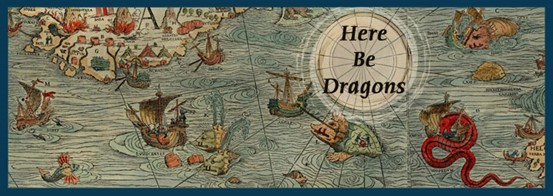Learning to deal with the unknown
Advances in Project Management
SERIES ARTICLE
By Prof Darren Dalcher
Director, National Centre for Project Management
Lancaster University Management School
United Kingdom
The most recent article in the series (Dalcher, 2021) recognised that agile and flexible approaches encourage experimentation-in-the-small, thereby supporting iterative and responsive exploration of new conditions in turbulent and unexplored settings. Sensing and responding are particularly useful when little is known about present conditions as they can be utilised as the basis for probing, making sense and setting new directions. Indeed, when we are lost in the fog, a repertoire of small moves to establish where we are and what kind of progress might be feasible is essential in making sense of our surroundings. But what of the bigger picture? Business agility implies recognition of purpose and strategic considerations. Yet, extreme uncertainty and ambiguity interfere with strategic planning and direction setting, challenging organisations and leaders to rethink, respond and react in the face of the uncertainty. How than, do we begin to come to terms with the unknown?
The quest to tame the unknown – The impact of uncertainty
Medieval maps offer a fascinating glimpse into the mindset of that era. Dangerous and unexplored territories at the edge of the known universe are often demarcated by strange and imposing land and sea animals, including lions, elephants, dragons, serpents and other wild beasts and monsters. The Hunt-Lenox Globe of c. 1510, now housed in the New York Public Library, depicts the Latin phrase ‘hic sunt dracones’ translated as ‘here be dragons’ to capture the uncharted and unknown nature of such regions. The symbols betray the fear of the unexplored and the unknown, and the uncertain features that it may hold.

The apparent distrust of the unknown stems from human preoccupation with knowledge and perfection. The quest for knowledge has played a major part in the intellectual development and evolution of individuals, societies and cultures over many generations and cultures. Socrates viewed knowledge as a virtue, a path to perfection. Prometheus was punished for bringing knowledge to the world, and Faust for wanting it too much.
Yet, knowledge has continued to feature as a defining commodity and a measure of progress. Aristotle, reflecting the height of Greek philosophy observed that ‘all men by nature desire knowledge’, while Socrates proclaimed that the only good is knowledge and the only evil is ignorance.
A life less certain
According to the Oxford Dictionary, certainty implies conviction or perfect knowledge, free of doubt. The idea of attaining perfection without entertaining doubt is attractive. British-Canadian physicist F. David Peat (2002) asserts that early theorists believed that science delivered this promise of certainty: built on the foundation of fact and constructed with unbiased and trustworthy tools, science would ultimately produce objective and proven knowledge.
Such a deterministic mode of thinking is predicated on the assumption that every effect has a discernible cause, thereby enabling prediction, determinism and observation, and—above all—a high degree of certainty. French novelist, Victor Hugo ruminated about a time ushered in by science, which will feature an end to surprises, calamities, catastrophes, and also to disputes, illusions and parasitisms (Finkielkraut, 2005). Indeed, as recently as 1900, Lord Kelvin, the President of the Royal Society, claimed that everything that was to be known in science was already known. The combination of Newton’s and Maxwell’s theories were considered capable of explaining every phenomenon, thereby laying the ground for a unity of knowledge. Science could thus herald the arrival of an era of certainty, the ultimate prize in humanity’s continuing quest for knowledge.
More…
To read entire article, click here
Editor’s note: The PMWJ Advances in Project Management series includes articles by authors of program and project management books published by Routledge publishers. Each month an introduction to the current article is provided by series editor Prof Darren Dalcher, who is also the editor of the Routledge Advances in Project Management series of books on new and emerging concepts in PM. Prof Dalcher’s article is an introduction to the invited paper this month in the PMWJ.
How to cite this paper: Dalcher, D. (2021). What you don’t know may still bite you: Learning to deal with the unknown, Advances in Project Management Series, PM World Journal, Volume X, Issue VIII, August. Available online at https://pmworldlibrary.net/wp-content/uploads/2021/08/pmwj108-Aug2021-Dalcher-what-you-dont-know-may-still-bite-you.pdf
About the Author

Darren Dalcher, PhD
Author, Professor, Series Editor
Director, National Centre for Project Management
Lancaster University Management School, UK
![]()
Darren Dalcher, Ph.D., HonFAPM, FRSA, FBCS, CITP, FCMI, SMIEEE, SFHEA, MINCOSE is Professor in Strategic Project Management at Lancaster University, and founder and Director of the National Centre for Project Management (NCPM) in the UK. He has been named by the Association for Project Management (APM) as one of the top 10 “movers and shapers” in project management and was voted Project Magazine’s “Academic of the Year” for his contribution in “integrating and weaving academic work with practice”. Following industrial and consultancy experience in managing IT projects, Professor Dalcher gained his PhD in Software Engineering from King’s College, University of London.
Professor Dalcher has written over 300 papers and book chapters on project management and software engineering. He is Editor-in-Chief of Journal of Software: Evolution and Process, a leading international software engineering journal. He is the editor of the book series, Advances in Project Management, published by Routledge and of the companion series Fundamentals of Project Management. Heavily involved in a variety of research projects and subjects, Professor Dalcher has built a reputation as leader and innovator in the areas of practice-based education and reflection in project management. He works with many major industrial and commercial organisations and government bodies.
Darren is an Honorary Fellow of the APM, a Chartered Fellow of the British Computer Society, a Fellow of the Chartered Management Institute, and the Royal Society of Arts, a Senior Member of the Institute of Electrical and Electronic Engineers, a Senior Fellow of the Higher Education Academy and a Member of the Project Management Institute (PMI), the British Academy of Management and the International Council on Systems Engineering. He is a Chartered IT Practitioner. He sits on numerous senior research and professional boards, including The PMI Academic Insight Team, the CMI Academic Council and the APM Group Ethics and Standards Governance Board as well as the British Library Management Book of the Year Panel. He is the Academic Advisor, author and co-Editor of the highly influential 7th edition of the APM Body of Knowledge. Prof Dalcher is an academic advisor for the PM World Journal. He can be contacted at d.dalcher@lancaster.ac.uk.
To view other works by Prof Darren Dalcher, visit his author showcase in the PM World Library at http://pmworldlibrary.net/authors/darren-dalcher/.









